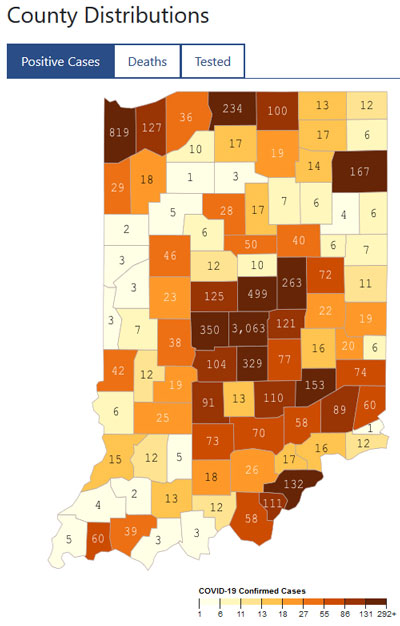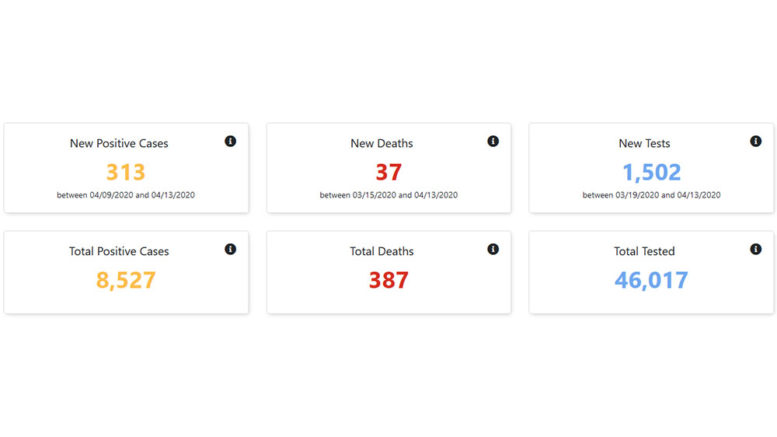State releases new detailed demographics . . .
Publisher’s Perspective
 Hamilton County health officials have tightly controlled access to information related to COVID-19, providing some data but refusing to share other, even when requested. The county continues to cite HIPAA as the reasoning.
Hamilton County health officials have tightly controlled access to information related to COVID-19, providing some data but refusing to share other, even when requested. The county continues to cite HIPAA as the reasoning.
After repeated requests from the Reporter for more localized data, Hamilton County Commissioner Steve Dillinger said the county has issued a request for the governor’s office to make a statement on what can be released.
I’m not real certain what Steve expects Holcomb to say. HIPAA is a federal law. And, Indiana officials have been much more transparent, apparently not as concerned about the data they are releasing violating HIPAA.
On Monday, the Indiana State Department of Health issued new, more detailed demographics, which now include age, gender, race and ethnicity.
The state also provided data from hospitals on percentages of ICU beds available and ventilator usage.
Hamilton County officials say, at the advice of the same state officials, they cannot release the data on a local level.
Looking at how other government agencies throughout our nation have handled COVID-19 data and HIPAA, you further see the lack of transparency from Hamilton County officials.

The number of cases in Hamilton County stood at 499 on April 14. You can access updated data daily by visiting coronavirus.in.gov/2393.htm. (Graphic provided)
South Carolina Gov. Henry McMaster said at a press conference last week, “We believe this is important information for the people. We want the people to know what we are facing.”
In other states, including California, Minnesota, Georgia and Iowa, county or state officials have named the care facilities with outbreaks or positive cases. Tennessee is working on releasing the names of the facilities where staff members test positive. Several government health organizations report COVID-19 data by zip code.
Indiana’s Health Commissioner Kristina Box announced the number of deaths that occurred at an Anderson nursing home. Box specifically identified the nursing home as Bethany Pointe Health Campus.
Adam Marshall, an attorney with the Reporters Committee for Freedom of the Press has been tracking records and access issues across the country during the COVID-19 pandemic. Marshall was quoted saying, “Many state and local governments have cited the federal health care privacy law – known as HIPAA – to withhold documents, but it doesn’t apply. Public officials just throwing HIPAA around like it’s a magic wand are not correct. The more data a government releases, the more the public can understand its response to the ongoing health emergency.”
Attorney Amanda Martin, with the law firm Stevens Martin Vaughn & Tadych, addressed the issue in an email she sent to reporters earlier this week as part of a regular series of updates on open government laws. In her letter Martin said, “Remember that release of de-identified information or aggregated data does not violate HIPAA.”
If you measure the importance of data at a local level, by the number of emails and phone calls I have received supporting the Reporter’s push for more transparency, Hamilton County people want more from county officials.
Why?
 If you have a loved one in a local nursing home, wouldn’t you want to know? Maybe, if that nursing home was a hot spot for COVID-19, and your loved one was lucky enough to remain virus free, wouldn’t you consider moving them to another facility or arranging home healthcare?
If you have a loved one in a local nursing home, wouldn’t you want to know? Maybe, if that nursing home was a hot spot for COVID-19, and your loved one was lucky enough to remain virus free, wouldn’t you consider moving them to another facility or arranging home healthcare?
Coronavirus will have a financial impact on every government entity in the county. An educated public will be better at understanding the effect of COVID-19 on their community’s financial resources.
If you knew the number of ICU beds and ventilators available at local hospitals, wouldn’t you be able to make a more informed decision on which hospital you would choose if you get sick?
Finally, people just want to know. They want to see the overall impact on their community. They see data the state is releasing and simply don’t understand why the same data cannot be produced on a local level. They are not buying into the county’s HIPAA response.
At some point we will reach the apex at a county level. That apex may not necessarily reflect an individual community.
I’ve had a few people tell me it is their right to know. I don’t think so, but certainly, in my opinion, the more informed a community is, the better the community becomes at making decisions that could save lives.

